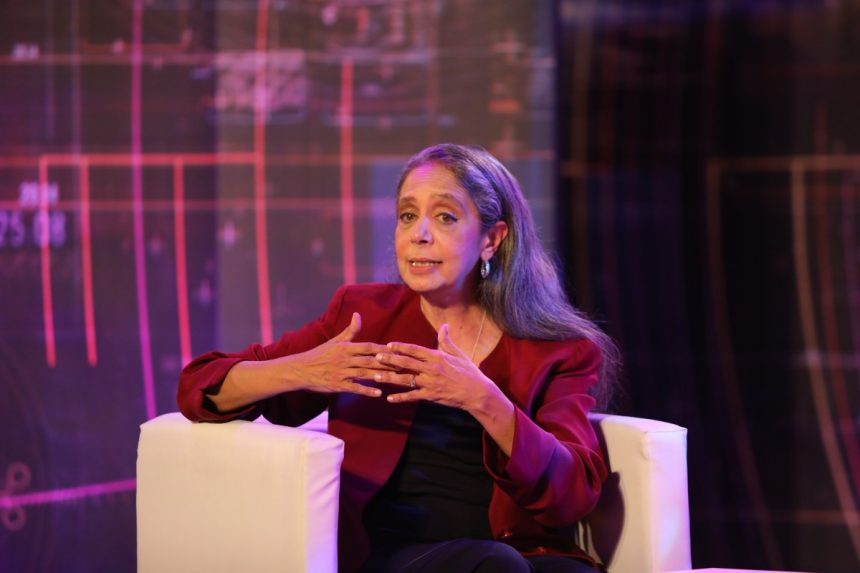iMerit, an AI data platform, asserts that the future of AI integration at the enterprise level hinges on high-quality data rather than sheer volume. The company emphasizes that this superior data must be derived from specialists in fields such as mathematics, medicine, healthcare, and finance, not from a large contingent of gig workers.
Radha Basu, CEO and founder of iMerit, stated, “What’s become exceedingly important is the ability to attract and retain the best cognitive experts, because we have to take these large models and make them very customized towards solving enterprise AI problems,” in an interview with TechCrunch.
For nearly a decade, the California- and India-based startup has quietly established itself as a dependable partner in data annotation for organizations engaged in computer vision, medical imaging, autonomous mobility, and other high-accuracy AI applications that necessitate human-in-the-loop labeling.
iMerit is now officially launching its Scholars program, moving out of beta, with the aim of cultivating a dedicated workforce of experts to enhance generative AI models for enterprise use and foundational models.
The company claims a roster of major clients, including three of the leading generative AI firms, eight prominent autonomous vehicle companies, several large U.S. government agencies, and two of the top three cloud providers.
The announcement coincides with news that Scale AI, one of the most recognized names in AI data annotation, has seen its founder and CEO, Alexandr Wang, depart for Meta, which recently acquired a 49% stake in the company. This shift has led several of Scale’s significant customers, including Google, OpenAI, Microsoft, and xAI, to reconsider their partnerships due to concerns about Meta potentially accessing their product roadmaps.
While iMerit does not intend to compete with Scale AI’s rapid, developer-focused data solutions, it is positioning itself to capitalize on the demand for expert-led, high-quality data that necessitates deep human judgment.
Rob Laing, iMerit’s VP of global specialist workforce, remarked, “We’re the adults in the room. A lot of money is being spent on AI right now. There are some very intelligent people building large platforms of human workforces. The output that they’re getting from that mass approach and that very quick speed to market approach is not at the level of quality that enterprises need.”
Basu highlighted the challenges posed by healthcare scribes developed using foundational large language models, stating, “If you don’t have the expertise of the cardiologist or the physician, what you’re doing is basically creating something that’s maybe 50% or 60% accurate. You want that to be 99%. You want to question the model. You want to break it. You want to fix it. That is what expert-led AI is making possible for enterprise.”
The iMerit experts are responsible for refining enterprise and foundational AI models through the company’s proprietary platform, Ango Hub, enabling Scholars to engage with customer models to identify and solve challenges.
Crucial to iMerit’s success is the ability to attract and retain these cognitive experts, who typically engage in long-term projects. The company boasts a commendable 91% retention rate, with women comprising half of its expert pool.
Laing, drawing from his experience with myGengo, noted, “It’s relatively easy to get warm bodies to perform menial tasks. Creating community requires a more human-centered approach.” He emphasized that Scholars not only have the chance to collaborate but are also encouraged to excel at their work. “We are very, very, very selective about how we bring people in,” he added.
Looking to the future, Laing predicts that companies prioritizing engagement, retention, and quality, like iMerit, will emerge as leaders in training AI models. Currently, the startup employs over 4,000 Scholars and intends to expand its workforce further. Despite not having raised funds since 2020 from investors including Khosla Ventures and Omidyar Network, iMerit remains profitable and sustainably funded, with aspirations to recruit up to 10,000 experts. Additional external investment may be sought in the future, though it’s not an immediate necessity.
Focusing mostly on healthcare over the past year, iMerit aims to extend its efforts into other enterprise domains, especially finance and medicine. Laing noted that generative AI is becoming its most rapidly expanding field, with leading AI firms collaborating with iMerit to enhance their foundational models.
“The free data out there on the internet is gone, and the lower level of human input data has also become commoditized,” Laing explained. “Where these folks are going is really trying to tune these things to achieve AGI or superintelligence.”AI








